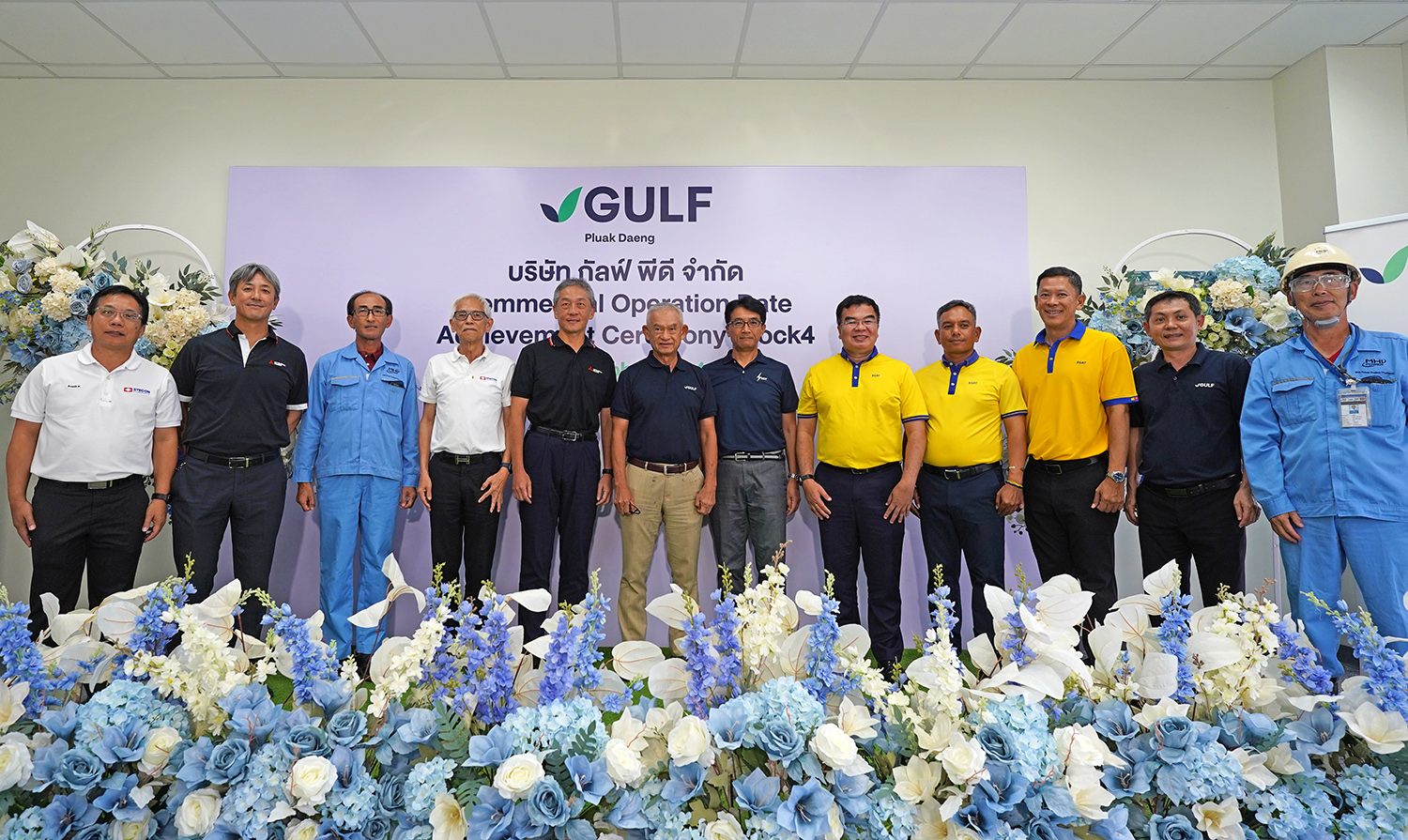 Photo via Mitsubishi Power
Photo via Mitsubishi Power
Mitsubishi Power fuels Thailand’s energy shift with completion of 5.3-GW gas-fired plant
All units were delivered on time.
Mitsubishi Power began commercial operation of its eighth and final M701J-Series Air-Cooled (JAC) gas turbine at the 5,300 megawatt natural gas-fired power plant project in Thailand, marking the completion of its largest order by capacity and contributing to the country’s energy security and decarbonisation. The first seven existing units have also achieved 100,000 actual operating hours on October 1.
The 5.3-GW project features two gas turbine combined cycle (GTCC) plants in Chonburi and Rayong Provinces. Each is equipped with four M701JAC gas turbines, steam turbines, and heat recovery steam generators.
Akihiro Ondo, managing director and CEO of Mitsubishi Power Asia Pacific, told Asian Power that the completion of this project is crucial for the country as Thailand’s gas turbine combined cycle power stations age.
“This 5.3 gigawatt plant will significantly contribute to providing more affordable, reliable, and efficient electricity to the Thai society,” he said, adding that it also positions the company to explore new gas turbine combined cycle opportunities across the Asia Pacific region.

Photo via Mitsubishi Power
Mitsubishi Power began construction on the project in 2018, with the first phase at the Chonburi power plant being completed in October 2022.
The company, serving as both the project’s equipment supplier and engineering, procurement and construction contractor, was able to complete the plant on time despite hurdles caused by the COVID-19 pandemic. This was thanks to a new approach that included remote support, along with close collaboration with owners Gulf Energy Development Public Company Limited and Mitsui & Co, Ondo said.
Mitsubishi Power will maintain the facilities under a 25-year long term service agreement. A 25-year power purchase agreement was also signed with the Electricity Generating Authority of Thailand.
Tapping other opportunities
Ondo said that the growing electricity demand in the Asia Pacific is an opportunity for Mitsubishi Power to contribute to the realistic energy transition.
“Gas turbines can provide reliable and economically viable electricity to the consumers whilst offering a practical, gradual transition solution. We believe that gas turbine combined cycle technology would be one of the key solutions to meet security, affordability and sustainability,” he said.
Aside from the Thai project, Mitsubishi Power has also received gas turbine orders from other companies like Malaysia’s PETROS Power and Singapore’s Meranti Power, Keppel Infrastructure and Sembcorp Industries.
All gas turbines to be installed in these projects will be capable of utilising 30% hydrogen upon commencement of commercial operation.
The company is also continuing to advance its hydrogen-firing technologies through its flagship projects, including its very own Takasago Hydrogen Park, the first integrated validation facility for hydrogen technologies spanning production, storage, and utilisation.
“Our gas turbines already have the capability to co-fire cleaner fuels like hydrogen, which can reduce carbon emissions by 10% as compared to natural gas-fired power plants,” Ondo said.
“We’re continuously innovating and validating our technologies at Takasago Hydrogen Park, and we plan to gradually increase the co-firing ratio from 30% to 50%. By 2030, we plan to complete the validation for 100% hydrogen firing and support the commercialisation of hydrogen-ready gas turbines all over the world, including in the Asia Pacific region,” Ondo said.
Another major project is the Advanced Clean Energy Storage Hub (ACES Delta Hub) in Delta, Utah. This facility will harness renewable energy to produce hydrogen that will be stored underground. The stored hydrogen will then be utilised in the new GTCC plant currently under construction, featuring Mitsubishi Power’s latest JAC gas turbine.
Ondo said ACES Delta Hub will be their first commercial project to use both gas and green hydrogen. It will start operating in early 2025.
Mitsubishi Power is also validating technology to fire 100% ammonia as it can be transported more easily than hydrogen.
Furthermore, the company offers energy conservation technologies for heat recovery using Organic Rankine Cycle technology and large chiller systems for district cooling systems.
“By combining these solutions, we aim to contribute to each customer and country based on their unique conditions, characteristics and needs. Providing customised and optimised solutions for the diverse communities in the region is our foremost priority,” Ondo said.























 Advertise
Advertise






